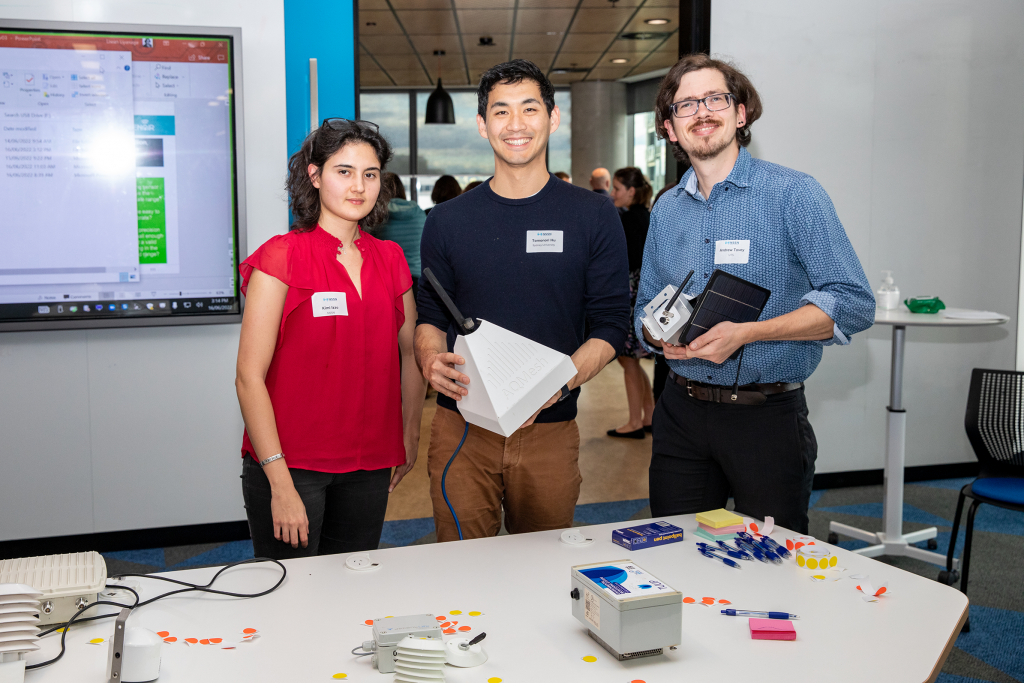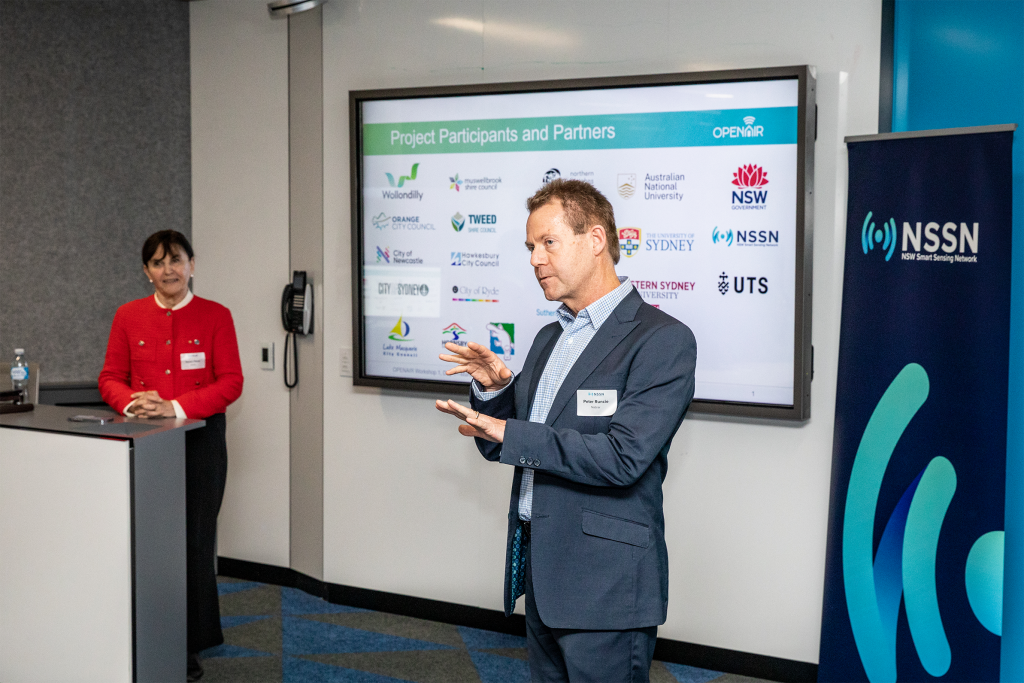Collaboration with councils kicks off
Localised air quality monitoring can help local governments create healthier communities. In Australia, poor air quality is a significant cause of health problems and premature death, and many councils lack expertise in local monitoring practice.
The Operational Network of Air Quality Impact Resources (OPENAIR) project looks to answer this challenge. On 16 June, ISF joined industry and government leaders at Western Sydney University to officially launch OPENAIR.
OPENAIR is a $2.4 million air quality monitoring research and development program led by the NSW Department of Planning and Environment (DPE) in collaboration with the NSW Smart Sensing Network (NSSN). The NSSN is a consortium of eight leading universities across NSW and the ACT which UTS forms a part of. ISF’s role within this network is to help translate innovative research in smart sensing into compelling solutions that create value for the economy, environment and society broadly.
The program has received a $1.78 million contribution from NSW Government through the $45 million Smart Places Acceleration Program, which is part of the Digital Restart Fund.
As part of the launch event, ISF participated in a two-day workshop convening project participants from the NSW Government, NSW-based expert consultants, five universities and participating local government councils.

Image: Kimi Izzo, NSW Smart Sensing Network, Tomonori Ho, University of Sydney, Andrew Tovey, ISF
The project will create best practice guidance for the use of low-cost smart sensors to address different air quality issues local governments face. The localised data from this program can then be shared with the broader community and help to inform recommendations for government policy research and standards development.
ISF Professor and Research Director Jason Prior says, “The collaborative approach to the OPENAIR project is key to its success. Working with local councils and small businesses means that our research will consider their needs and experiences, ensuring that the resources we design will be truly useful to them.”
These resources will be specially designed to support councils in the practical implementation of their own air quality monitoring programs.
The launch workshops
Over 40 participants attended the workshops, which included council representatives and experts. The event was held at Western Sydney University’s city campus on 16 and 17 June 2022. The project team and participating councils attended the project launch and networking event as part of the two-day program.
A mix of presentations and collaborative activities from experts and council participants provided information on a range of topics:
– data architecture
– sensor technology
– sensor procurement
– developing a business case
– stakeholder engagement frameworks.
The hands-on group activities allowed councils to problem solve through scenario-based learning. In addition to facilitating engagement with councils and experts, the workshop also served as a platform to learn from each other and apply these insights in the project.
Overall, the program was well received by all the participants and helped set the tone for the next phase of the project.

Image: OPENAIR Project Lead and NSSN Smart Cities Lead
OPENAIR is being delivered with funds from the NSW Government Smart Places Acceleration Program, part of the Digital Restart Fund.
This article was originally published by the Institute for Sustainable Futures on 16 June 2022 by Ettore Pacilli.